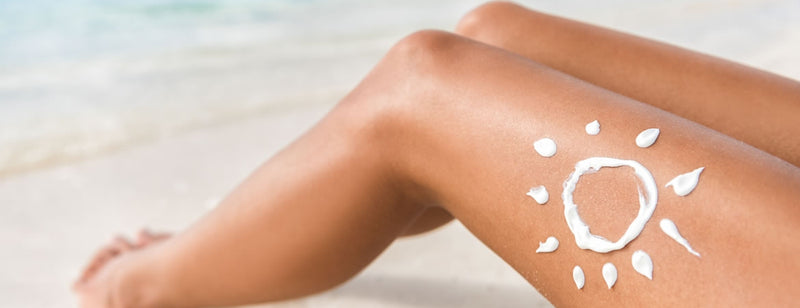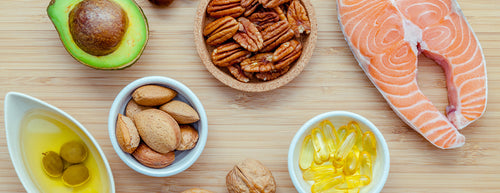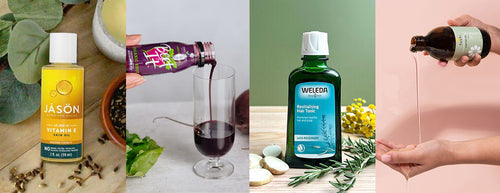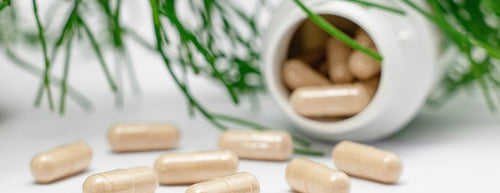It can be lovely to be out and about soaking up the sun's rays. We don't see them often enough here in Ireland so some of us can lose the run of ourselves once they do make an appearance. But protecting our skin from the sun’s harmful rays should be a priority during the summer months. It is vital to prevent premature aging, sunburn and skin cancer. Here are our top tips for staying safe in the sun, to keep you and your family’s skin safe during the summer season...
Tips for Staying Safe in the Sun
1. Natural Sunscreen
Sunscreen is the first port of call when it comes to staying safe in the sun. Many conventional sunscreens use a long list of chemicals that absorb into the skin. They work by scattering the sun’s rays to prevent burning. However, with Natural Broad Spectrum, Mineral sunscreens they use Zinc Oxide as the main sun protective ingredient. It acts like a mirror to simply reflect the sun’s rays away from the skin.
Natural mineral sunscreens work immediately to block the sun’s rays. Plus they don’t break down as quickly as conventional sunscreens, therefore they provide long-lasting protection.
Product Recommendations:
- Jason Family Sunscreen SPF 45
- Aloe Pura Organic Aloe Vera Sun Lotion SPF15
- Green People Organic Children’s Sun Lotion SPF 30
2. Frequent Application
Another of our top tips for staying safe in the sun is re-apply! While enjoying the sun, sea and sand at home or on your holidays, it’s important to be mindful and apply your sunscreen regularly. This is especially important if you are in and out of the water throughout the day. We’re recommended to re-apply sunscreen every 80 minutes or so especially if exposed to direct UVA and UVB rays during peak hours in the day (11am-3pm).
3. Limit Strong Sun Exposure
The World Health Organization’s (WHO) International Agency for Research on Cancer tells us that UV radiation is usually strongest for a few hours around noon. It is less strong during the early morning and the late afternoon/evening. Therefore we’re advised to reduce our exposure to the sun’s strong rays during these times.
4. Antioxidant Protection
When it comes to staying safe in the sun, certain foods can actually be of help. Some foods contain antioxidants and anti-inflammatories like carotenoid that can help to fight free radicals and provide natural sun protection (obviously it's still uber important to wear SPF).
So providing the body with lots of skin protective antioxidants such as Astaxanthin and Beta Carotene can almost act as an internal sunscreen. They can protect your skin from harmful sun rays and also appear to have a rejuvenating effect on skin in general.
Product Recommendations:
- Biona Carrot Juice
- Nua Naturals Spirulina Powder/Tablets
- Solgar Astaxanthin or Pharma Nord BioActive TanCare
5. Maximise Vitamin D Synthesis
A lot of experts tell us to apply sunscreen before leaving the house. However, in order to allow the skin to synthesis healthy vitamin D levels it’s advised to spend the first 10 to 15 minutes outside without sunscreen, ideally before noon or after 4pm. This will activate some vitamin D production in your skin. So take your sunscreen with you and apply it after you’ve given your skin some time to soak up some healthy rays. Looking for a vitamin D supplement? We've rounded up some of the best vitamin D supplements.
NB: You should be careful never to burn in the sun. It's important to cover up or apply sunscreen before your skin starts to burn or turn red - sun safety is vital.
6. Natural Plant Oils Provide Protection
Many natural sunscreens use plant oils as a base as they provide natural skin protection against the sun for reasonable amounts of time. Plus, they still allow sufficient sunlight to reach the skin so it can make vitamin D naturally. Furthermore, using a natural plant oil as a moisturiser will improve the look and feel of your skin. Wheat germ oil is right on point with an SPF factor estimated at 20. It is also rich in skin protective Vitamin E which is used as a base for many natural sunscreens. Of course, sunscreen should still be used alongside these products.
Product Recommendation:
- Atlantic Aromatics Wheat Germ Oil 50ml
Please note, this blog is for informational purposes only and should not replace medical advice.
It’s always best to consult your doctor before taking any new supplements, treatments or remedies if you are pregnant, breastfeeding or on medication.
Checked and updated: 6 September 2021













